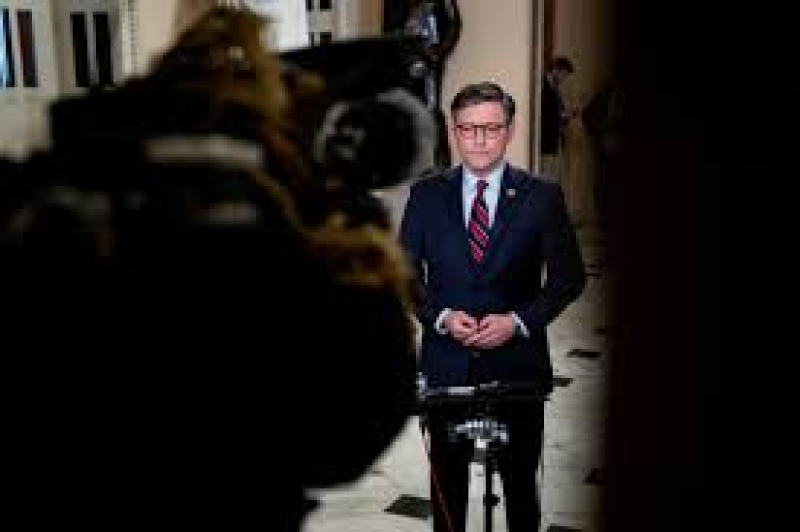- Remittance Inflow Surges 45% to $3.17bn in January |
- Militant Attacks Kill 33 in Balochistan; 92 Assailants Dead |
- Power generation at Payra Thermal Power Plant 1st unit starts after a month |
- Irregularities, injustice will no longer be accepted in politics: Jamaat Ameer |
- 2 arrested in Jhenaidah for allegedly selling madrasa student |
US House considering plan to avert shutdown

New US House Speaker Mike Johnson will soon face his first major test as the chamber votes on his proposal to keep government funded past 17 November.
The stopgap measure would keep all federal agencies open at current spending levels through mid-January.
Mr Johnson, a Republican, must rely on Democrats to secure the two-thirds majority needed to pass the bill.
Members of the right-wing Republican Freedom Caucus have already announced their opposition to the plan.
Mr Johnson's bill is an unconventional two-tier proposal.
Parts of the government would be funded until a January deadline, while some others would be funded up to early February. The staggered deadlines are intended to give lawmakers time to work out longer-term spending bills and also to delay debate over wartime aid to Ukraine and Israel.
To keep the government from shutting down, both the House and the Democratic-majority Senate must pass the plan and get it to President Joe Biden to sign into law by midnight on Friday. Otherwise, tens of thousands of federal employees would be furloughed without pay as soon as next week and various government services would be abruptly suspended.
Mr Johnson's continuing resolution is a so-called "clean" bill with no spending cuts, policy provisions or other strings attached.
That same type of measure led to the historic removal of Mr Johnson's predecessor, Representative Kevin McCarthy, who worked with Democrats to keep the federal government open.
Mr Johnson's plan appeared on Tuesday morning to have tentative Democratic support, with top House Democrat Hakeem Jeffries saying he was "carefully evaluating" Mr Johnson's plan.
But, just like Mr McCarthy, Mr Johnson is facing pushback from the far right of his own party.
"I will not support a status quo that fails to acknowledge fiscal irresponsibility, and changes absolute nothing while emboldening a do-nothing Senate and a fiscally illiterate president," Representative Scott Perry of Pennsylvania and leader of the Freedom Caucus wrote on social media platform X, reports BBC.

